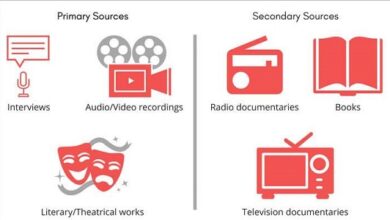Research Writing
Research Writing
Research writing is a process of inquiry that involves gathering and analyzing information in order to answer a question, solve a problem, or explore a topic. Research writing is often used in academic and professional contexts, such as in research papers, dissertations, reports, and articles.
The research writing process typically involves several stages. The first stage is selecting a research topic or question. This involves identifying a problem or area of inquiry that is of interest to the researcher and that has not already been extensively studied. The research question should be specific and focused, and should be framed in a way that can be answered through research.
The next stage is conducting a literature review. This involves gathering and analyzing existing research and scholarship on the topic of inquiry. The literature review provides the researcher with an understanding of what has already been studied, what gaps exist in the research, and what questions remain unanswered. The literature review also helps the researcher to identify key theories, concepts, and methodologies that will be relevant to their own research.
The third stage is developing a research design. This involves determining the methodology that will be used to gather data and answer the research question. The methodology may involve collecting data through surveys, interviews, observations, experiments, or other methods. The research design also includes developing a plan for analyzing the data that is collected.
The fourth stage is collecting and analyzing data. This involves actually carrying out the research, gathering data, and analyzing it in order to answer the research question. Data analysis may involve statistical analysis, qualitative analysis, or a combination of both.
The final stage is writing up the research findings. This involves communicating the results of the research in a clear, concise, and organized manner. The research report typically includes an introduction, literature review, methodology, results, discussion, and conclusion. The introduction provides an overview of the research question and the purpose of the study. The literature review summarizes the existing research on the topic. The methodology describes the research design and the methods used to gather and analyze data. The results section presents the findings of the research. The discussion section interprets the results and explains their significance. The conclusion summarizes the main findings and implications of the research.
Research writing is an important tool for generating new knowledge and understanding in a wide range of disciplines. It allows researchers to explore new ideas, test hypotheses, and make contributions to their fields. Moreover, research writing helps to promote critical thinking skills, as researchers must evaluate evidence, analyze data, and interpret results in order to draw conclusions. In addition, research writing plays an important role in professional development, as it allows researchers to communicate their findings to colleagues and stakeholders, and to contribute to ongoing debates and discussions in their fields.
-

Quantitative methods of research When to do quantitative research
What is the quantitative method? In this article we will provide you the information about Quantitative methods of research When…
Read More » -

General and specific objectives Similarities Differences and FAQs
General and specific objectives In this article we will provide you the information about the General and specific objectives Similarities…
Read More » -

Difference between primary and secondary sources Similarities and FAQs
Primary and secondary sources In this article we will present you the Difference between primary and secondary sources Similarities and…
Read More » -

Difference between qualitative research and quantitative research Similarities and FAQs
Qualitative research and Quantitative research In this article we will provide you the difference between qualitative research and quantitative research…
Read More » -

Difference between questionnaire and survey Similarities and FAQs
Questionnaire and survey In this article we will provide you the difference between questionnaire and survey, Similarities and FAQs. What…
Read More » -

What are Research questions how to approach a study examples
Research questions are the first step to take before starting to study something that intrigues us. In science, it is necessary to…
Read More » -

What is Correlational research characteristics types and examples
Correlational research is a type of non-experimental research in which investigators measure two variables and establish a statistical relationship between…
Read More » -

What is free association origin contents of the unconscious problems
Free association is one of the methods most closely linked to the psychoanalysis of Sigmund Freud and his followers. At the time,…
Read More » -

What is an academic report How to make an academic report
Undergraduate and graduate students generally need to report activities carried out at the end of the term or all stages…
Read More » -

How to write a scientific essay structure Theme/title
The academic world demands from students, especially from stricto sensu postgraduate programs, a series of productions aimed at generating reflections…
Read More »